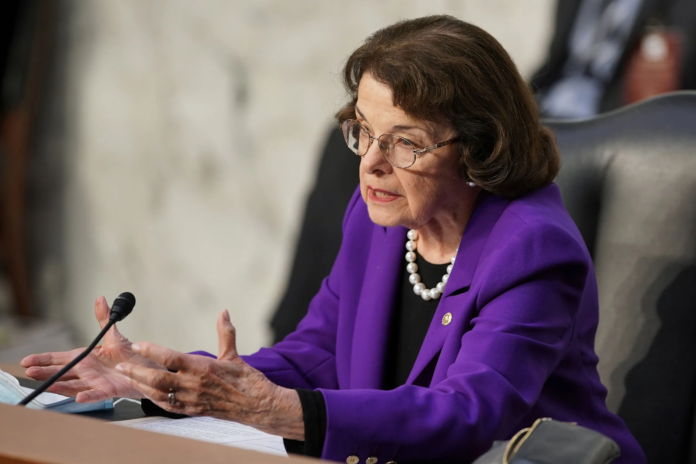By Angelina Tang
California Senator Dianne Feinstein passed away in her home on Thursday, September 28. She was 90 years old and the oldest serving woman in the U.S. Senate, having been elected in 1992 and holding the position ever since. During her career, she was a leader in the gun control movement and headed an investigation into the CIA’s torture of prisoners following 9/11.
California’s state governor has opted to focus on celebrating her legacy for now, rather than finding a rapid replacement. Governor Gavin Newsom stated, “She broke down barriers and glass ceilings, but never lost her belief in the spirit of political cooperation.” In addition, Feinstein’s Senate chief of staff James Sauls announced on Friday the 29th, “Senator Feinstein was a force of nature who made an incredible impact on our country and her home state.”
As senator, Feinstein is most well-known for being instrumental to the federal ban on assault weapons passed in 1994. In addition, her work investigating torture via waterboarding and sleep deprivation by the CIA following 9/11 was described as “the high point of [her] entire Senate career” by Tom Blanton, the National Security Archive head at George Washington University. In addition to bettering the nation and keeping those in power responsible, she also strived to better her home state. She and fellow Senator Alex Padilla funded eight airports in California with a $139.5 million dollar grant to renovate their facilities and strengthen the air transport system in the state.
Feinstein used to serve as mayor of San Francisco, so she feels deeply connected to her home state. Following the assassination of Mayor George Moscone and Supervisor Harvey Milks in 1978, she stepped into the spotlight by handling the press coverage of the tragedy with impressive poise, becoming the interim and subsequently elected mayor of San Francisco until 1988. She was a monumental figure in the AIDS epidemic, as San Francisco was ravaged by the virus in the 1980’s. Feinstein allegedly invested more into fighting AIDS in San Francisco than the federal government did for the entire country, turning the city into the golden standard for AIDS treatment.
Feinstein’s rise to the Senate was part of a wave of female Senators being elected in 1992. Following the sexual harassment accusations by Anita Hill against Supreme Court nominee Clarence Thomas in 1991, concerns about a lack of women with governmental power prompted the election of five new women into the Senate, one of whom was Feinstein. Her legacy in politics has left long-lasting marks on the fields of feminism, gun control, LGBT rights, and incarceration justice, and her name will live on even after a new senator takes her place on the floor.

